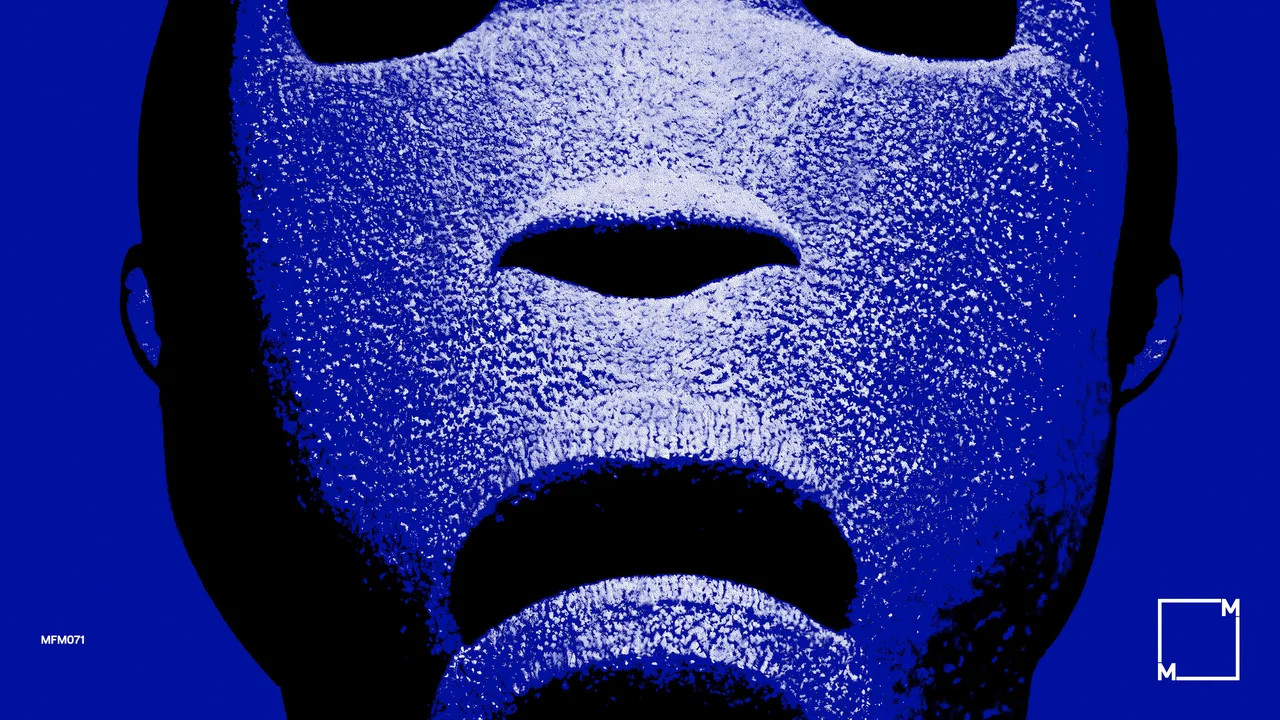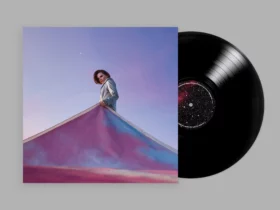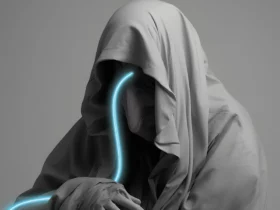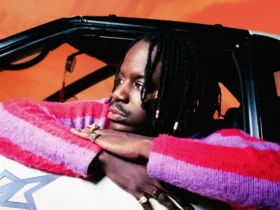GENRE: Electronic
LABEL: Music From Memory
REVIEWED: July 25, 2024
Decked out in wind synths and fretless bass, the L.A. trio’s debut album lovingly invokes new age and ambient jazz at their most opulent. It’s a heartfelt argument that smoothness is not a crime.
Los Angeles’ Nicky Benedek and Alex Talan may not live in the past, but you can bet they have summer houses there. Benedek—who in 2011 cited Zapp and Roger Troutman as influences, making him one of the most clued-in college juniors in the history of higher education—got his start making sleek, ’80s-inspired boogie that sounded like it had been swiped from the cassette deck of a vintage lowrider (another major influence: West Coast G-funk). When he graduated to a broader amalgam of R&B, new age, freestyle, and deep house, Benedek’s music remained steeped in analog warmth and tape hiss. Talan, aka Coolwater, has shown similar crate-digging instincts on his NTS show Cool World West, favoring artists like Joe Zawinul, Bill Laswell, Haruomi Hosono, and also Talan’s late father, a filmmaker and bedroom synth player. Coolwater’s eponymous 2020 debut EP sounds like a distillation of all those influences, a kind of L.A. jazz noir with a Blade Runner soul. In the new trio Total Blue, which includes their friend Anthony Calonico, they dim the lights and deliver an even more enchanting simulacrum of outernational jazz and big-budget new age.
The three musicians previously worked together on Coolwater’s EP, which in retrospect looks like a trial run for Total Blue. Their debut album takes similar sounds and influences—fretless bass, muted trumpet, racks of outboard effects—and distills them into a dreamier, more ethereal fusion. “The Path” opens the record on an aquatic scene: A liquid electric bass melody glistens like oily water beneath the docks; a gentle marimba rhythm clinks like rigging against sailboat masts. It’s chromatically lush, a feast of augmented chords and burnished accidentals; halfway through, a keening wind-synthesizer melody carries the song to its logical smooth-jazz conclusion. “Corsair” picks up both the maritime metaphor and the retro sensibility: Everything, from the flanged guitar to the LinnDrum thwacks, seems designed to evoke a specific era and spirit of digitally abetted jazz production. Back in its heyday, this was an expensive sound to create; Total Blue pay tribute to those studio bills of yore with sumptuous chords and arrangements that sound like a million bucks.
If you didn’t know the backstory, it would be easy to assume from the album’s glistening sheen that it was a reissue of an ’80s new-age relic. Even the evocative, globe-trotting titles sound like something from a Windham Hill or Private Music laserdisc: “Heart of the World,” “Chaparral,” “Jaguarundi.” It’s not just the sound design that feels opulent; so do the songs themselves, which stretch out with an almost extravagant sense of leisure, bass glissando and ersatz reeds mirroring each other in slow, sensuous motions. No matter how many times I’ve listened, every time the trio pivots to a particularly juicy chord, it feels like triple cherries coming up on the slot machine.
Their references are easy to identify. The taut, dubbed-out guitar plucks at the center of “Heart of the World” flash back to the cosmic expanses of Manuel Göttsching; “Jaguarundi” is rooted in the rainforest rhythms of Jon Hassell records like Vernal Equinox; the electroacoustic shimmer that ripples across the album recalls new-age jazz composers like Mark Isham and Patrick O’Hearn. Unlike some record collectors, these three never sound like they’re trying to score cool points; to the contrary, many of their inspirations are artists and sounds that have long been written off by gatekeepers. “Bone Chalk,” one of the album’s highlights, is a dead ringer for the billowing filter sweeps and misty-eyed chord changes of Seal’s “Violet,” the meditative closing song on the adult-contemporary singer’s Trevor Horn-produced debut. Intentional homage or accidental kin? Whatever the case, Total Blue’s bewitching take on ambient jazz is a compelling argument that there’s no such thing as too smooth.





